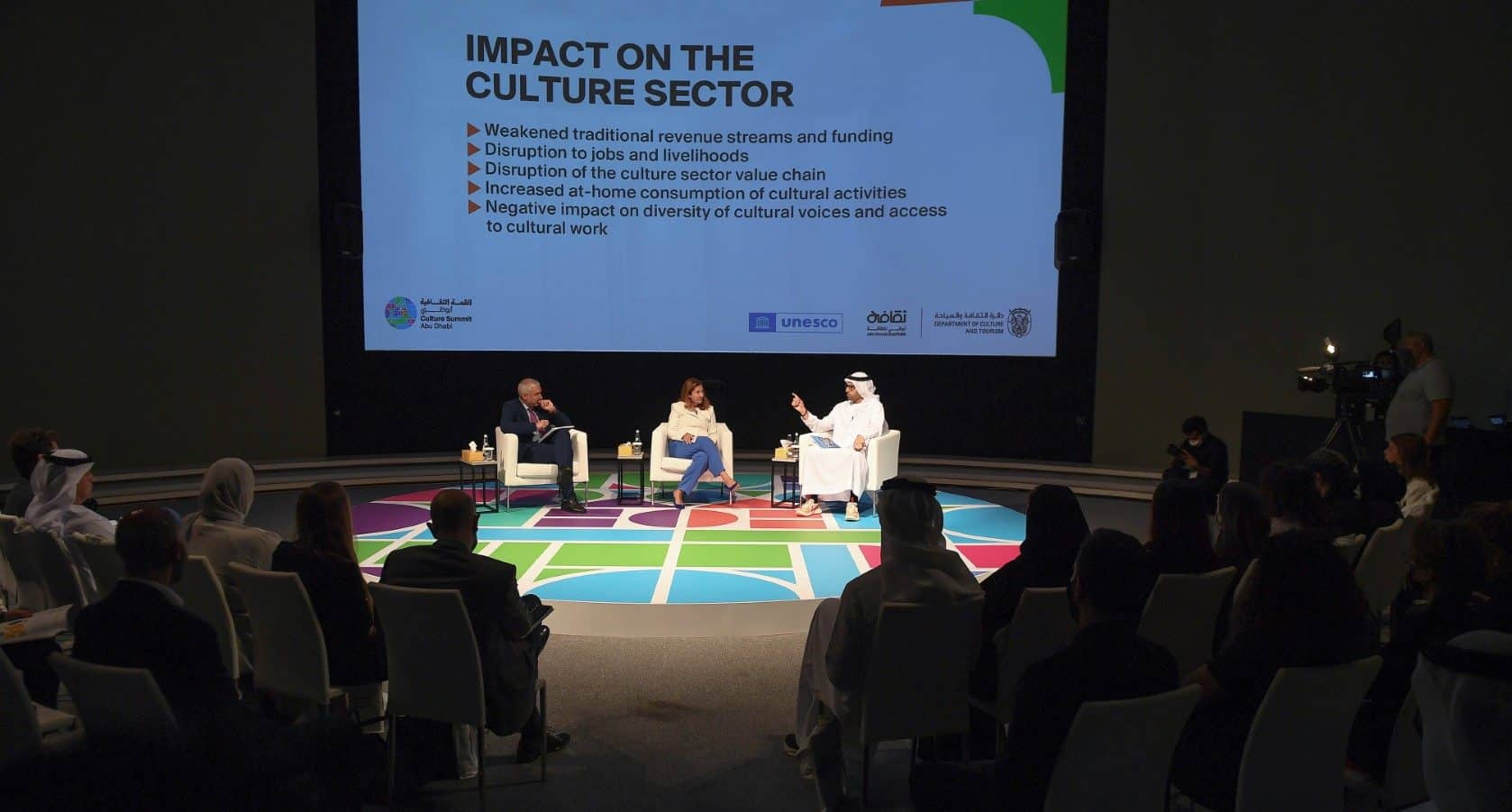The culture was one of the most seriously impacted sectors globally due to COVID-19 pandemic, with more than 10 million jobs lost in 2020 alone and a 20-40 percent drop in revenues across the sector, a publication by the Department of Culture and Tourism – Abu Dhabi (DCT Abu Dhabi) and the UNESCO recently pointed out.
The sector also saw a decline of 25 percent of its Gross Value Added (GVA) in 2020. However, while most of the sector suffered a sharp decline, online publishing and audiovisual platforms experienced growth due to increased reliance on digital content during the pandemic, the co-publication “Culture in Times of COVID-19: Resilience, Recovery and Revival” highlighted while giving a global overview of the impact of the pandemic on the culture sector since March 2020, and outlining directions for its revival..
Examining the impact of COVID-19 across all cultural domains, the publication also identifies major global trends reshaping the culture sector and proposes new integrated policy directions and strategies to support the sector’s revival and sustainability.
“We have identified major reforms currently emerging around the world in response to the global crisis. It is essential to recognise the potential of the culture sector to fuel societal transformation and recovery across all development objectives and support integrated approaches to revive the culture sector,” according to Ernesto Ottone R., UNESCO Assistant Director-General for Culture.
Mohamed Khalifa Al Mubarak, Chairman of DCT Abu Dhabi, said, “While the report highlights the repercussions of the pandemic on the culture sectors globally, we are optimistic about how we, as an international cultural community, can move forward. More significantly than the findings themselves is what the report proposes in terms of directions and strategies that will better shape the sector into a resilient and sustainable one for generations to come. Our partnership with UNESCO and Abu Dhabi’s role in producing the report cements our commitment to generate solutions and policies that will strengthen the culture sector in the UAE and around the world.”
Using data from more than 100 industry reports, 40 expert interviews, and economic analyses, the publication underscores the need for an integrated approach to the recovery of the culture sector and calls for a re-framing of the value of and support for culture, as a critical foundation for a more diverse and sustainable society.
The report also highlights broader shifts in cultural production and dissemination, notably due to the accelerated digitisation of cultural products during the pandemic. Revenues from the digital creative economy totalled US$2.7 billion globally in 2020, over a quarter of the sector’s overall revenue.
The pandemic has proven a threat to cultural diversity. The increased precariousness of the livelihoods of freelancers and cultural workers, combined with the exacerbation of already deep-rooted inequities in terms of gender and disadvantaged groups in society, have caused many artists and culture professionals to leave the field, undermining the diversity of cultural expressions. These inequities, combined with regional disparities, have severely undermined the production and distribution of cultural goods and services. For instance, in Latin America, 64 percent of freelancers in the culture sector lost more than 80 percent of their income as a result of COVID-19.
The end of the pandemic presents a significant opportunity to reposition culture on the public agenda and enhance its value as a global public good, says the report. It notes that the pandemic resulted in an enhanced recognition of the culture sector’s social value and contribution to collective and individual wellbeing, as well as to sustainable development. In 2020, culture was included for the first time in the policy discussions of the G20 and the report argues that it is essential to grasp the global momentum.
The report comes a year after UNESCO and DCT announced their work on the global study. They both explored how the culture sector is not simply recovered but transformed, drawing on lessons learnt during the pandemic. The publication launch and event also contributed to the preparation of the UNESCO World Conference on Cultural Policies and Sustainable Development – MONDIACULT 2022, which will take place in Mexico in late September 2022.
For UNESCO and DCT, this report represents the continuation of an ongoing collaboration on a series of strategic initiatives that support a joint commitment to advancing culture as a public good and protecting and promoting the diversity of cultural expressions to achieve the Sustainable Development Goals by 2030.








